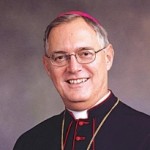Mark Shea writes on the media and it’s perceptions on Benedict:
Two years ago, the mainstream media gathered in a special conclave in Rome to discuss the disastrous election to the papacy of Ratzinger the Enforcer, God’s Rottweiler, the hardliner, inflexible, rigid, etc., blah blah. Some of us suggested to our television screens that the talking heads might want to wait more than a few seconds before doing the autopsy on the pontificate of Pope Benedict XVI. […]
…when you Google the following clichés, you get these kinds of numbers:
“Benedict XVI” rigid — 52,800
“Benedict XVI” hardliner — 27,100
“Benedict XVI” inflexible — 10,300
“Benedict XVI” dominating — 290,000
“Benedict XVI” ruthless — 126,000
“Benedict XVI” enforcer — 28,800
“Benedict XVI” archaic — 22,400
“Benedict XVI” medieval — 169,000
“Benedict XVI” intolerant — 148,000
“Benedict XVI” backward — 122,000
“Benedict XVI” “Hitler Youth” — 30,700
“pope cracks down” — 1,080,000Thus fully informed on the mind and life of Benedict XVI, the press is as prepared as a pea shooter against field artillery for what happens whenever Benedict actually, you know, says something. So, for instance, when he released his first encyclical Deus Caritas Est, the bafflement was palpable…[the press] is constantly astounded to find that their caricature of him is not true and, with truly childlike reasoning, concludes that Benedict must have “grown.”
[…]
Case in point: Bruce Chilton, Bernard Iddings Bell Professor of Religion at Bard College, who writes a review of Benedict’s new book, Jesus of Nazareth, for the New York Sun. The title of the review (“Papal Corrections”) is a promise of things to come, and Chilton does not disappoint. He breathlessly announces the news that the pope has discovered that Christianity ought to have something to do with the teaching of Jesus and the apostles:Benedict emphatically sets aside the view that faith amounts to a form of law, and insists that the relationship of the believer to God through Christ defines Christian belief. He does not acknowledge his debt to Martin Luther, but it is palpable… Theology is sometimes a contact sport, and this may be an example of yesterday’s heresy becoming today’s orthodoxy. A considerable body of non-Catholic biblical scholarship now accepts that Jesus himself taught his disciples mystical union with God, on the basis of the Judaism of his time, so the position Benedict describes is more widely founded than he indicates.
This is the sort of thing that leaves so many Catholics at loss for where to even begin.
You’ll wan to read it all. Then rejoice, rejoice in the realization that we grow ever nearer a time when Catholic music at mass will cease to make us go off wailing into the night. That day cannot come soon enough.











